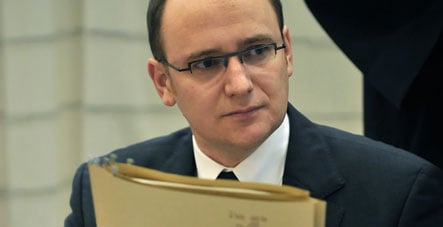The 39-year-old had been charged with 101 crimes including blackmail, fraud, breach of trust, coercion and assault, but was found guilty on just 11 counts of fraud and 5 counts of assault after coming to an agreement with the court.
Labelled “Germany’s nastiest priest” by the daily paper Express, was found guilty of giving false information to obtain two loans of €120,000 ($175,000) from the diocese of Freiburg in southern Germany as well as an additional €17,000 from a local parish and other private sources in the same area. He apparently used the money to finance a lavish lifestyle , buying vehicles, furniture, clothing and frequent meals at restaurants.
The four bodily harm charges came from incidents with his live-in female companion, a woman 11 years his senior who he met through his priestly duties in 2003. The court found him guilty of abusing her in attempt to get her to sell her home and give him the money.
Total damages from his crimes rang in at €220,000, accumulated between 2003 and 2006, the court said.



 Please whitelist us to continue reading.
Please whitelist us to continue reading.